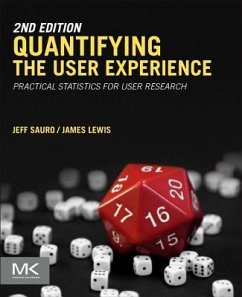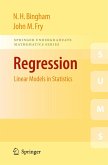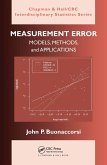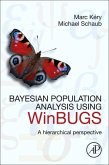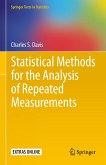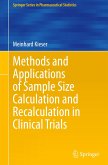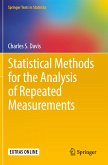Quantifying the User Experience: Practical Statistics for User Research, Second Edition, provides practitioners and researchers with the information they need to confidently quantify, qualify, and justify their data. The book presents a practical guide on how to use statistics to solve common quantitative problems that arise in user research. It addresses questions users face every day, including, Is the current product more usable than our competition? Can we be sure at least 70% of users can complete the task on their first attempt? How long will it take users to purchase products on the website?
This book provides a foundation for statistical theories and the best practices needed to apply them. The authors draw on decades of statistical literature from human factors, industrial engineering, and psychology, as well as their own published research, providing both concrete solutions (Excel formulas and links to their own web-calculators), along with an engaging discussion on the statistical reasons why tests work and how to effectively communicate results. Throughout this new edition, users will find updates on standardized usability questionnaires, a new chapter on general linear modeling (correlation, regression, and analysis of variance), with updated examples and case studies throughout.
Hinweis: Dieser Artikel kann nur an eine deutsche Lieferadresse ausgeliefert werden.
This book provides a foundation for statistical theories and the best practices needed to apply them. The authors draw on decades of statistical literature from human factors, industrial engineering, and psychology, as well as their own published research, providing both concrete solutions (Excel formulas and links to their own web-calculators), along with an engaging discussion on the statistical reasons why tests work and how to effectively communicate results. Throughout this new edition, users will find updates on standardized usability questionnaires, a new chapter on general linear modeling (correlation, regression, and analysis of variance), with updated examples and case studies throughout.
Hinweis: Dieser Artikel kann nur an eine deutsche Lieferadresse ausgeliefert werden.
"I will use this second edition as a reference when I need to find the latest thinking about UX measurement and when I teach statistics again it will be my first choice." --From the foreword by Joe Dumas, User Experience Consultant
"Sauro and Lewis are the acknowledged leaders in the quantitative assessment of usability, and their combined wisdom is ably reflected in the second edition of this book. Serious practitioners of usability science will find this book a valuable addition to the highly qualitative texts that are currently available." --Philip Kortum, Rice University
"To-Do list for the UX Field to become a true discipline: . Develop a rich collection of user-centered design methods [CHECK].. Drive understanding of the importance of UX into most design/development teams [CHECK]. . Advocate for and educate about how to implement a serious, empirical, practical approach to gathering and analyzing user data. [Thanks to the career-long work of Sauro and Lewis, culminating in this book, we can now say . . . CHECK.]" - Randolph G. Bias, Professor, School of Information, The University of Texas at Austin
"Sauro and Lewis are the acknowledged leaders in the quantitative assessment of usability, and their combined wisdom is ably reflected in the second edition of this book. Serious practitioners of usability science will find this book a valuable addition to the highly qualitative texts that are currently available." --Philip Kortum, Rice University
"To-Do list for the UX Field to become a true discipline: . Develop a rich collection of user-centered design methods [CHECK].. Drive understanding of the importance of UX into most design/development teams [CHECK]. . Advocate for and educate about how to implement a serious, empirical, practical approach to gathering and analyzing user data. [Thanks to the career-long work of Sauro and Lewis, culminating in this book, we can now say . . . CHECK.]" - Randolph G. Bias, Professor, School of Information, The University of Texas at Austin

